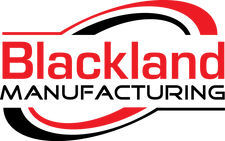You may see epoxy resin countertops and pegboards on our site, but not everyone may know just what the material is. So today we answer what are epoxy and resin, and what makes this particular resin desirable for laboratory equipment?
Though resin has a particular connotation in nature, the resin that we deal with is defined by Merriam-Webster as: “any of a large class of synthetic products that have some of the physical properties of natural resins but are different chemically and are used chiefly in plastics”. These synthetic resins fall into the category of “thermosetting polymers”, which are plastics solidified through heat. Such polymers are incapable of being reverted back from the mold they are shaped into.
The term “epoxy” stems from the “-oxy” part of its name, and refers to the oxygen atoms bonded within its chemical makeup. The more commonly used understanding of the term is that it is a strong, bonding adhesive. Understanding the two individual terms helps one understand what this material is and how it works. In a lab setting, this equates to a material that you can work on top of relatively worry free. An epoxy resin countertop will be strongly bonded, and possess a level of resistance to chemicals and flame.
Visit BlacklandMFG.com today to view our epoxy resin countertops and other epoxy resin laboratory equipment!
Laboratory Basics for Students
The laboratory. The name almost sounds menacing. Despite the name, a lab does not need to be a scary place to a new, aspiring science student! Knowing your way around the room and its wonderful contents will make your journey a pleasant, educational experience. Consider this a little guide into what to find in a laboratory.
- Lab tables- There are several types of tables in a lab, such as balance tables; however, most of the time, the lab table you’ll be stationed at will be a larger table made of a number of possible materials.
- Equipment Drawers and Pegboards- Here is where you’ll find your beakers, flasks, balances, Bunsen burners, and other such apparatus that you’ll use.
- Sink- Every lab needs a sink. It’s good practice to wash all equipment before and after usage, to provide cross-contamination, which could lead to anything from skewed data to terrible results.
- Lab Coats/Goggles- Safety is incredibly important, especially when working around chemicals! A lab coat and pair of lab goggles will help protect your skin and eyes from spills and splashbacks.
- Eye Wash/First Aid Station- It’s important to know where in the lab the eye wash station and first aid kits are located. A chemical burn can cause serious problems, but you can minimize damage with quick action.
Know where to find all of these, and you will be well on your way to your first experiment!
